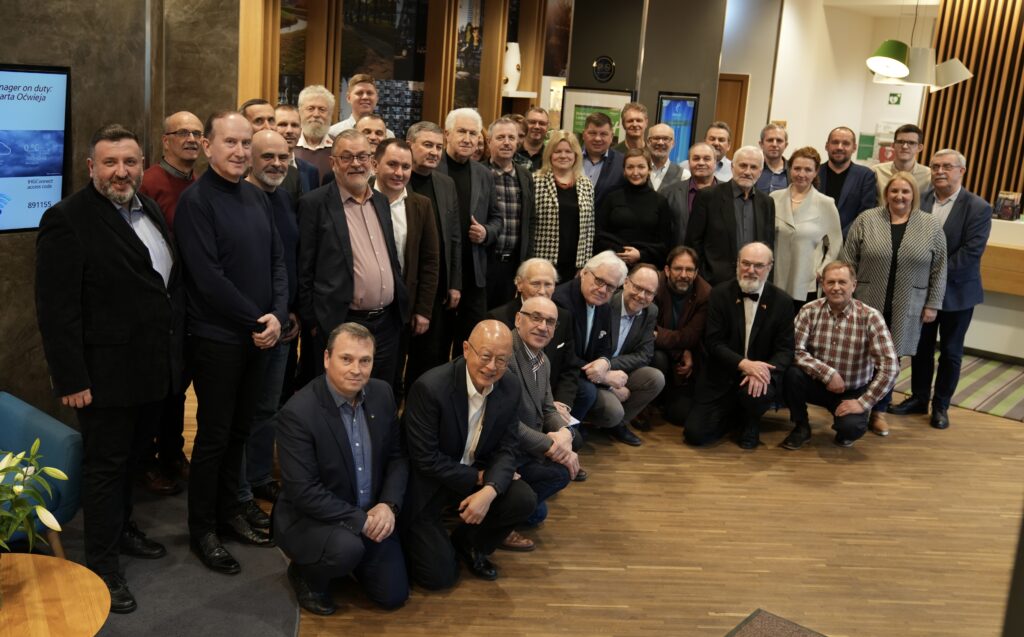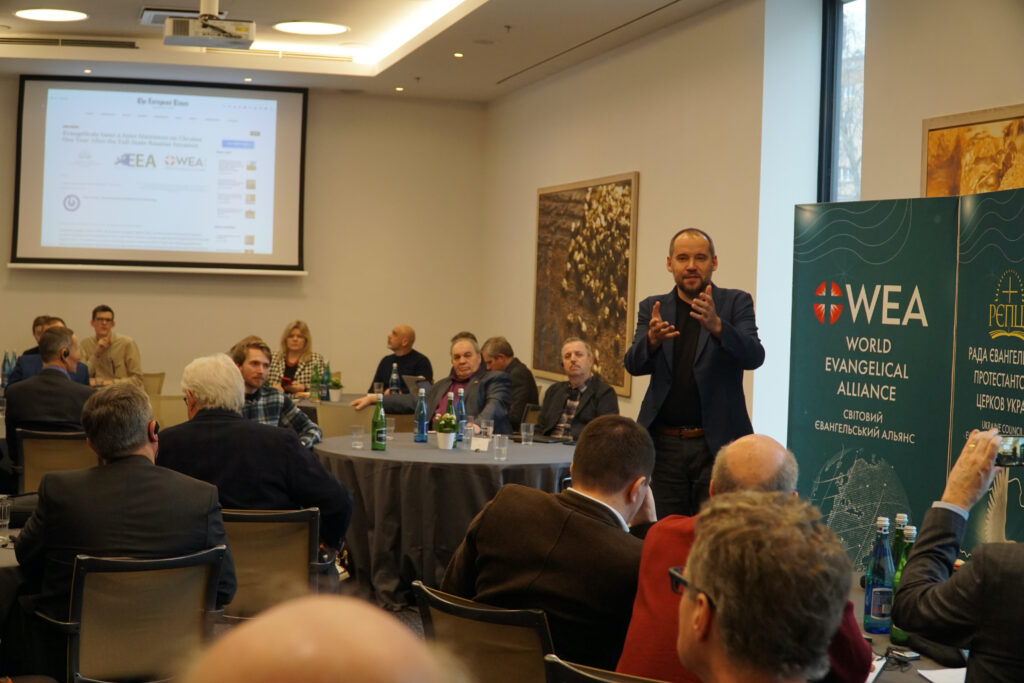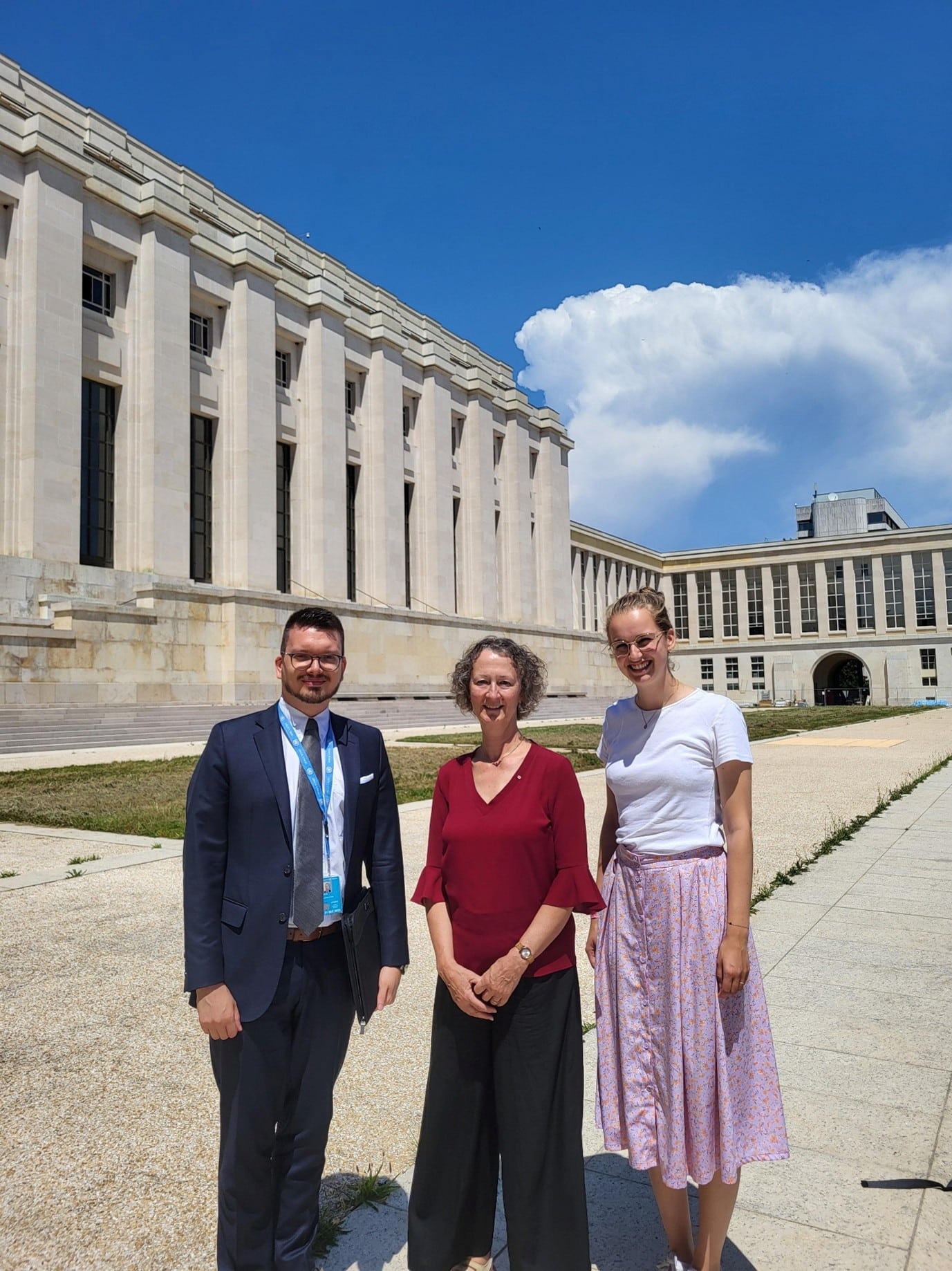The World Evangelical Alliance (WEA) together with the European Evangelical Alliance (EEA), the Ukrainian Council of Evangelical and Protestant Churches and the Polish Evangelical Alliance hosted an International Partnering Summit on the Global Church Response in Ukraine and Beyond.

The event was held in Warsaw, Poland on March 1-3, just over one year after Russia started a full-scale war in Ukraine, which caused a major humanitarian crisis with significant global implications.
“Thousands of people lost their lives, and millions were forced to flee their homes. In a time of immense tragedy, there are rays of hope as different people reach out to help those affected by the war. Evangelical Christians in Ukraine and across Europe, with the support of fellow believers around the world, are at the forefront of this response,” said Bishop Dr. Thomas Schirrmacher, Secretary General of the WEA.
Since the first days of the Russian invasion, the WEA has been working with the Ukrainian Evangelical community to help those affected by the war. The WEA established The Response – Ukraine Special Taskforce (TRUST) to coordinate efforts with Evangelical communities and strengthen responding churches in Ukraine and neighboring countries.
The meeting, which was organized by CEPCU and TRUST, brought together key leaders representing various alliances, denominations, and organizations from Ukraine, Europe, and around the world. It aimed to strengthen the response of the global Evangelical community to significant crises, responding to and learning from the situation in Ukraine.

Specifically, the participants resolved to continue their support, particularly long-term, for Ukraine and Ukrainian refugees; work towards increasing broad collaboration around the response; and identify models for effective engagement of the global Evangelical community in future crises.
EEA General Secretaries Jan C. Wessels and Connie Main Duarte commented, “As General Secretaries it was and is great to see and to hear about the continuous care for many refugees in nearly almost all the countries of Europe and how evangelical Christians and Churches play a major role in that. Many national evangelical alliances have helped out from the start of the war and are still coordinating efforts to care for people that are traumatised but also to make sure that traffickers don’t have a chance to abuse the situation of people in need. European evangelicals are really standing together with our Ukrainian brothers and sisters in unity, in prayer and in action.”
“We discussed several important issues of the crisis in Ukraine. One of them was the support for pastors, which is crucial because local churches are epicenters of aid, the effectiveness of which depends in many ways on the leadership of local pastors who stay there. TRUST and CEPCU have launched the first phase of the pastor support initiative, providing assistance for respite, rehabilitation, and other emergency needs for 322 pastors from 13 denominations in Ukraine,” said Ruslan Maliuta, who leads TRUST.
“The participants also discussed work with refugees across Europe, focusing on trauma care and long-term needs, as well as church planting within the framework of the refugee crisis,” he added.
The Ukrainian leaders expressed their appreciation for the support from the global evangelical family. “I would like to thank all the European and global leaders for supporting Ukraine in this time of hardship. Christ’s Church is beautiful!” said Philip Savochka, Chairman of CEPCU.
Over the course of the summit, participants also discussed learnings for future crises. There was a conviction that it is important for shepherds to stay, so they remain present and care for the people. What also stood out in the response of pastors and Christian leaders to the war in Ukraine were the immediate decentralization of decision-making to the very local level, the widespread practicing of hospitality and the ability of people of various backgrounds to learn new skills as the changing environment required.
See also:





Stay Connected